Heroin is considered a particularly addictive drug and Tennessee lawmakers have responded in kind with tough narcotics laws. Prosecutors tend to treat heroin crimes with more vigor than some other controlled substances.
Because of this reality, it is important that you hire an experienced criminal defense attorney who can protect your constitutional and statutory rights during the criminal process. Nashville-based attorney Philip Clark of PNC Law is just such a drug lawyer. He takes cases not only in Nashville but also all around the Middle Tennessee area.
Heroin Laws in Tennessee
Tennessee law treats heroin as a Schedule I controlled substance.[1] It is a crime to knowingly possess heroin or engage in what is known as casual exchange. It is an even more serious crime to knowingly possess heroin as a controlled substance with the intent to sell or deliver it.[2] Furthermore, Tennessee law imposes enhanced penalties if a defendant is selling heroin within 1,000 feet of a school or child daycare.[3]
Whether the criminal offense is simple possession or a drug sale crime is often a question of degree. Juries may infer from the amount of drugs possessed, and other contextual factors, that the drugs possessed were for the purpose of drug sales rather than personal possession and use.[4] For example, the presence of drug scales, individual packets of heroin, and large packets of cash may indicate that the defendant was intending to sell heroin rather than engage in simple possession or what Tennessee law calls a “casual exchange” of the drugs.
Constitutional Defenses
An experienced criminal defense attorney, such as Philip Clark of PNC Law, can evaluate closely the charging documents and the surrounding context of your case to determine whether you may have any constitutional-based defenses to assert. Law enforcement officials in their zeal to prosecute heroin crimes sometimes do not follow the law. They violate defendants’ constitutional rights to be free from unreasonable searches and seizures under the Fourth Amendment and Article I, Section 7 of the Tennessee Constitution.
If the police do not violate the Fourth Amendment and conduct an unreasonable search or seizure, Philip Clark can file a motion to suppress the evidence that is considered “fruit of the poisonous tree.” Former U.S. Supreme Court Justice Louis Brandeis wrote eloquently years ago:
Decency, security and liberty alike demand that government officials shall be subjected to the same rules of conduct that are commands to the citizen. In a government of laws, existence of the government will be imperilled if it fails to observe the law scrupulously. Our Government is the potent, the omnipresent teacher. For good or for ill, it teaches the whole people by its example. Crime is contagious. If the Government becomes a lawbreaker, it breeds contempt for law; it invites every man to become a law unto himself; it invites anarchy. To declare that in the administration of the criminal law the end justifies the means — to declare that the Government may commit crimes in order to secure the conviction of a private criminal — would bring terrible retribution. Against that pernicious doctrine this Court should resolutely set its face.[5]
What this means is that law enforcement officials cannot break the law and violate your constitutional freedoms in enforcing drug laws.
Contact Attorney Philip Clark of PNC Law
Needless to say, if you are charged with a drug offense – and particularly a heroin charge – you need a criminal defense attorney experienced in defending individuals charged with meth charges. An experienced criminal defense attorney may be able to negotiate with prosecutors so that you receive a favorable plea. There also may be defenses based on an unlawful search or seizure under the Fourth Amendment or Article I, Section 7 of the Tennessee Constitution.
Nashville-based attorney Philip N. Clark of PNC Law is just such an experienced attorney. He is a zealous advocate on behalf of his clients. Furthermore, he has nearly twenty (20) years of experience as a former Metro police officer. If you face heroin charges, contact attorney Philip Clark at (615) 678-1033 or e-mail him at philip@tncriminaldefenseattorney.com.
[1] Tenn. Code Ann. § 39-17-406(c)(11).
[2] Tenn. Code Ann. § 39-17-417(a)(2)
[3] Tenn. Code Ann. § 39-17-432.
[4] Tenn. Code Ann. §39-17-419.
[5] Olmstead v. United States, 277 U.S. 438, 485 (1928)(J. Brandeis, dissenting).
